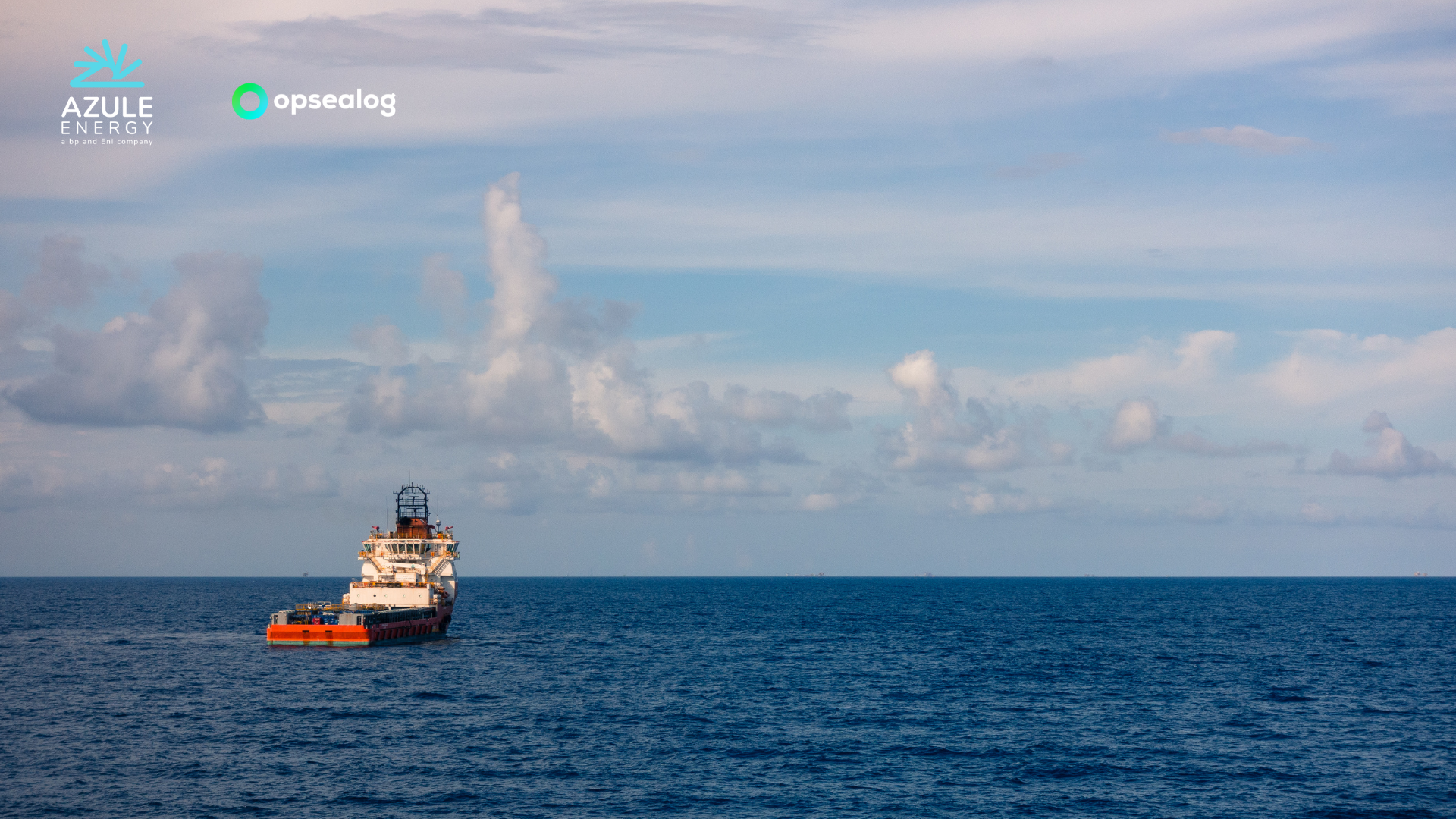Digitalisation project will help reduce greenhouse gas (GHG) emissions from a total of 33 Offshore Supply Vessels by up to 10%.
Marseille (France) and Luanda (Angola), 27th of August 2024 – Opsealog, a provider of data integration and analysis services for the maritime and offshore industry, has been awarded a two-year contract with Azule Energy, Angola’s largest independent energy company, to reduce fuel consumption and greenhouse gas (GHG) emissions from its Offshore Supply Vessel (OSV) fleet. Through enhanced data collection, integration, and analysis, the project could reduce the fleet’s GHG emissions by up to 10%, according to initial estimates by Opsealog.
The agreement covers 28 Offshore Supply Vessels (OSVs) in the first year, expanding to Azule Energy’s full fleet of 33 vessels in 2025. The main objective is to reduce the fleet’s fuel consumption and greenhouse gas emissions, supporting regulatory compliance and Azule Energy’s own environmental commitments.
Opsealog’s e-reporting system Streamlog will fully digitize onboard reporting and deliver real-time vessel tracking for the fleet, which is operated across three oil blocks in Angola. This data will be integrated and analyzed through Opsealog’s Marinsights platform to provide in-depth insights that will help boost operational efficiency, reduce fuel consumption and emissions, and maximize vessel safety and reliability.
By optimizing operations, the project will help Azule Energy address challenges such as the frequent need for vessels to move urgently between the different blocks. It will use data-driven insights to develop a cost allocation system per block, tackling the additional costs and emissions associated with vessel scheduling deviations.
Luis Buezas Jiménez, International Business Manager at Opsealog, said: “This partnership with Azule Energy demonstrates how digitalization is an essential foundation for progress on a wide range of operational aspects in the offshore sector – including the industry’s chief priorities of safety and sustainability. Through enhanced data collection and integration, teams will be equipped with data-driven insights to immediately improve operational efficiency and reduce harmful emissions. We are proud to embark on this project and support Azule Energy’s ambitions of delivering responsible energy development for the communities of Angola.”
Learn more about Azule Energy: https://www.azule-energy.com/

